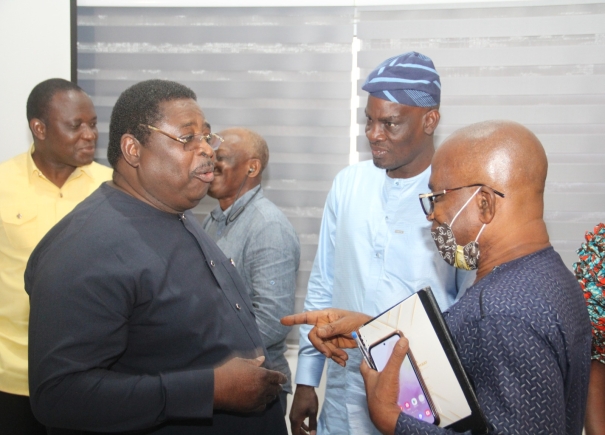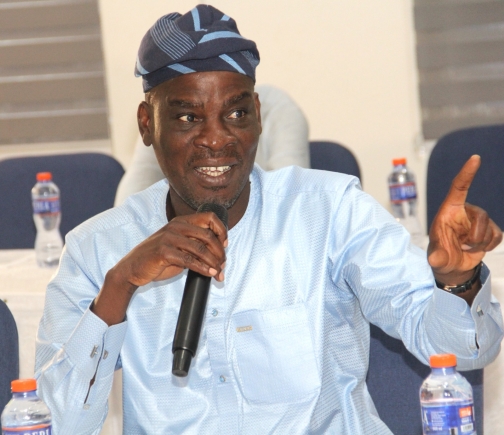
Time to amend constitution to do away with winner-takes-all - Haruna Iddrisu
The Member of Parliament for Tamale South, Haruna Iddrisu, has called for a national dialogue to brainstorm on ways to amend the 1992 Constitution to do away with the winner-takes-away-all principle as enshrined in the Constitution.
This, he said will help reduce the tensions and conflicts that arise ahead of every general election.
Speaking at a stakeholders’ consultation meeting last Saturday [Sept 21, 2024], to validate the preliminary report of the Constitutional Review Consultative Committee (CRCC), Haruna Iddrisu said doing away with such a provision would help foster a greater sense of patriotism among Ghanaians to encourage them to support any government that wins an election.
“Today, the winner-takes-all principle is a major problem in Ghana that only the Constitution can respond to, and which if properly resolved, will keep the unity and cohesion of the country,” he said.
Read also: Towards good parliamentary democracy: Hybrid system won’t work - Justice Dotse asserts

Representative government
Mr Iddrisu said “The germane to all the tensions and conflicts we are witnessing in the run up to the competitive December 7 elections is because of the winner-takes-away-all principle.”
“If we are able to deal with such a major problem, it will be the beginning of our political ethos and values as a nation so that Ghana will have a proportional kind of representative government like what pertains in South Africa. It will be based on your strength and the opportunity to cooperate and government will be shared with you,” he said.
He was contributing to discussions during the validation of the preliminary report of the CRCC to build consensus and nurture ownership of the constitutional review process.
The event drew participation of representatives from the office Attorney-General, current and retired justices of the Supreme court, Ghana Bar Association, the Judiciary, current and former members of Parliament, ministers of state, members of the diplomatic corps, policy think tanks, traditional leaders, civil society, the clergy as well as private citizens.
The output of the report will be used as the foundation for a sovereign national conference to solicit a buy-in of Ghanaians for a possible holistic review or isolated amendments of the 1992 Constitution as stakeholders might determine.
It was organised by the Ministry of Parliamentary Affairs which constituted the committee to review the report of the 2010 Constitutional Review Commission (CRC), its accompanying White Paper and consider other provisions that might lend themselves to possible review.
Isolation
The National Democratic Member of Parliament for Tamale South said the constitutional principle of the winner-takes-all had de-spirited and isolated a section of Ghanaians to support a government that won elections that they did not share their political beliefs and philosophy.
Doing away with the principle, he said, would therefore engender the spirit of patriotism among all Ghanaians, regardless of their political affiliation.
“Whoever wins power, there are Ghanaians citizens of merit who will never ever get recognised because they did not share the political belief and philosophy of a certain ruling elite of government and that is wrong and that must be corrected,” he said.
Decoupling ministers from MPs
Sharing his view on whether MPs could serve as ministers at the same time, Mr Iddrisu said Ghana had lost the opportunity in the last eight years to have amended the Constitution to respond to such need.
He cited Kenya where in 2010 the constitution of that country was amended to respond to the kind of problems that Ghana had today.
Since that amendment to decouple ministers from MPs, the move had not served Kenyans very well enough.
“What Kenyans have observed is that those ministers who are not MPs do not care more about constituents than those who are MPs who want, because of blackmail, to perform in order to keep their seats.
“I just want to say that we need to have the best practices when we talk about decoupling but arguably whatever the outcome of elections, we should get serious about constitutional review next year,” he said.
Waterdown powers of President
On the issue of the Constitution granting the President too much power, Mr Iddrisu said such constitutional empowerment must be watered down.
He questioned what basis the President should be appointing the Chief Executive of hospitals such as the Korle Bu Teaching Hospital.
“You even hear the President issuing appointment letters for the head of mortuary unit of the hospital. So, we also must water down the powers of the President,” he said.
Parliament weakest link
Describing Parliament as the weakest link in the country’s governance structure, he argued that if Parliament were to live up to its calling, Ghanaians would not be asking for a constitutional review.
“If the Parliament of Ghana was living up to its trust and core business, there is nothing under this Constitution that Parliament cannot do.
“But we sleep in the name of extensive partnership and we sleep in the name of political sabotage sometimes,” he said.
Disagreement
Contributing, the NDC MP for Sagnarigu, A. B. Fuseini, disagreed strongly with decoupling MPs serving as ministers, given the shift in development paradigm from ministries, departments and agencies.
He said whenever there was a road to be constructed in any constituency, the Ministry of Roads and Highways as well as the Department of Urban Roads yet the people looked up to the MP as the primary person with the responsibility to fix such roads.
“In fact, the MP is taken to task and insults are heaped on the MP when the road is done and the people may not even tackle the district chief executive.
“So, in a situation where there is a requirement for resources that is far beyond the reach of the MP to fix roads that the government ordinarily be doing, where is the MP going to get that money.
He added: “So, in a system where MPs have the opportunity of being made ministers of state or ministers in charge certain agencies of government, that is the area they fall on to spur development in their respective areas.”
